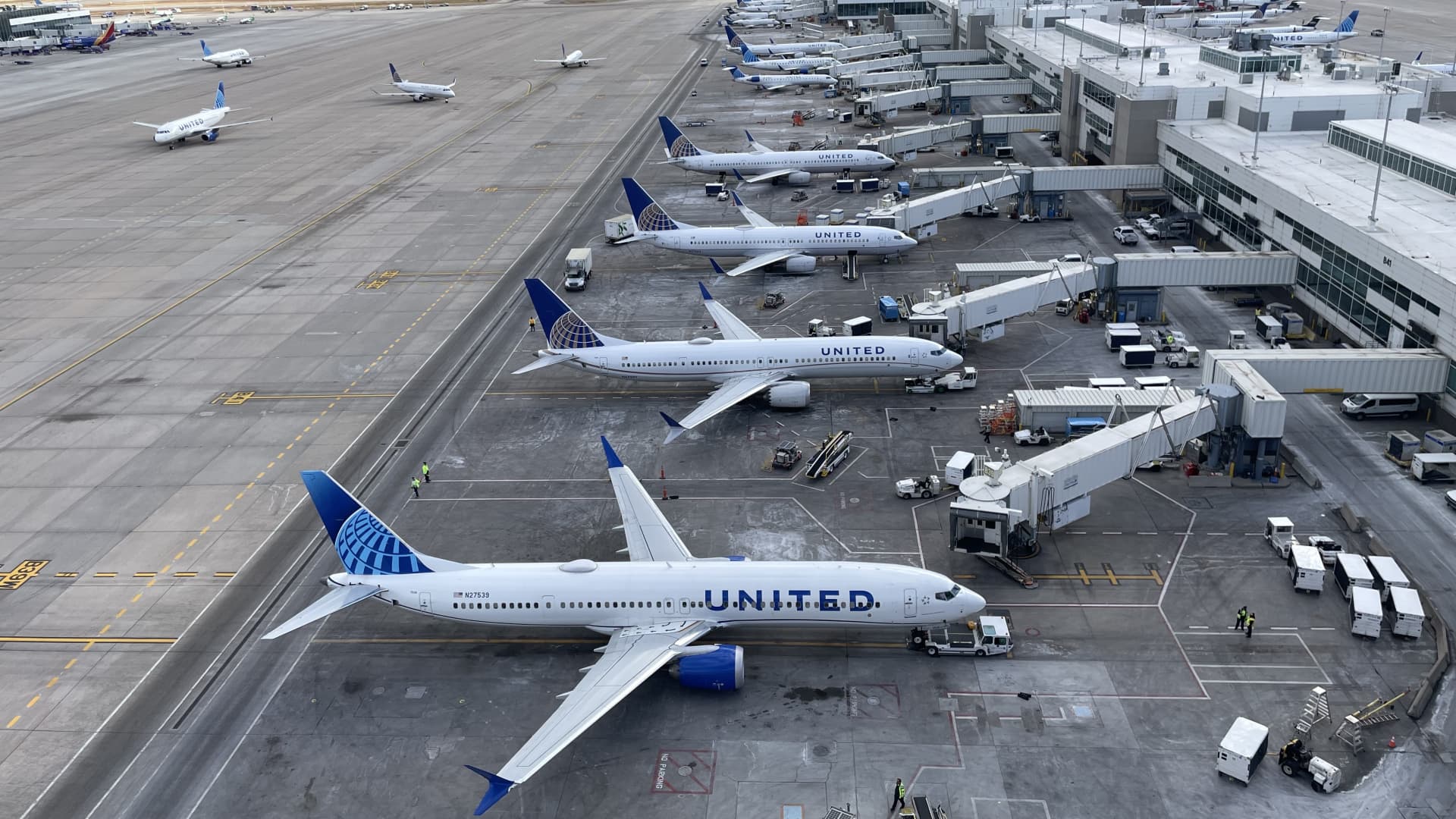- American, JetBlue and Alaska have all raised baggage fees this year.
- Carriers have changed the price to check a bag depending on whether travelers pay for it in advance or at the airport.
- Airlines and other companies have been grappling with how to grow profits while reining in costs, such as new labor contracts.



More weight = more fuel.
True about any vehicle. But only planes charge extra for it.
Your car charges extra for it via gas consumed
This is a math question I have always wanted to answer. Say I put a penny in my car… how long would I have to drive before that penny has cost me a penny of extra fuel?
This question is actually TWO questions:
There are many many factors that will change these answers (how much you pay for fuel, what kind of car you’re driving, where you’re driving it, even what weather are you driving in, etc).
The #2 question is easier to answer. Lets take a specific car to work the numbers: a 2022 Toyota Corolla with the 1.8L engine with USA emissions. We’ll assume we’re driving on level ground in conditions matching the EPA fuel testing guidelines on the highway. This gives us 38MPG source
Lets also assume you’re in New York where the average price of 87 octane gas is currently $3.34/gallon source
With our $3.34/gallon gas at 38MPG, that means $0.0879 (about 9 cents) a mile or $0.00001664 per foot.
So the answer to question #2 is: one penny of fuel for this car in this place would travel about 600ft
As to the answer for question #1:
“a report issued by the Aluminum Association, Inc. based on research by Ricardo. The chart below shows that for a small car with a 1.6-liter engine, reducing weight by five percent led to an increase in fuel economy of 2.1 percent on the EPA combined rating.” source
So lets assume we get the same for our 1.8L Corolla. A 2.1% fuel economy would take our 38MPG to 38.798MPG.
With our $3.34/gallon gas at 38.798MPG, that means $0.086 (still about 9 cents a mile) or $0.00001664 per foot. One penny of fuel for this car in this place would travel about 614ft. So dropping 100lbs would make the car go 14ft more per gallon.
Modern pennies are copper plated zinc. There are approximately 181 copper plated zinc pennies in a pound. source So 18100 pennies is 100lbs. So 18100 pennies in the car would cost us 14ft of travel on our gallon of gasoline.
So the answer to your original question of “how long would I have to drive before that penny has cost me a penny of extra fuel?”
About 4,285 miles
Realistically the numbers are so small this is likely somewhat inaccurate because of rounding in various steps of calculation.
That’s only 24 miles? That’s crazy!
Double check the post. I had a math error that I edited my post for correction. The final answer I came up with was: About 4,285 miles
Good question, I copied this response from Quora, but looks legit to me, feel free to do more digging as required. The equation doesn’t copy well here, but you can Google it and find the answer with the equation intact.
Let’s assume that you have a 1500 kg car including baggage, driver, etc. You want then to add another 65 kg passenger. Since fuel consumption is highly dependent on driving style and on the routes you take, let’s also assume that your average fuel consumption is 6.0 L/100 km, considering no extra passengers. The last assumption I’d make is that fuel consumption increases linearly with car weight, if the weight deviations are low.
We can use a simple proportion to estimate the fuel consumption with the added weight, considering all of the above assumptions:
(Removed equation would be here)
That is a 4.33% increase on fuel consumption.
These assumptions may not be very accurate, but personally I believe that this estimation is a worst-case scenario.
I’m not an expert but I think the extra amount of fuel a plane uses to do it is going to be more expensive than a bus carrying an extra bag.
Also if I remember right, any unused space can be used by FedEx/UPS to move packages and the airliners get more money from that than passenger’s bags
I’m also not an expert, but I think a plane ticket costs significantly more than a bus ticket.
Depends on where you need to go honestly. Per km traveled planes are actually unreasonably cheap.
Cheaper than the same distance by bus? I find that difficult to believe unless you’re talking about budget airlines that don’t allow you to check luggage at all anyway.
Boston to Portland. I chose cities at random.
Greyhound:
Delta:
Flying between major cities in the EU can be cheaper than taking multiple busses / trains to get there if you buy the tickets way ahead
If there is a direct touring bus that’s still cheaper.
Maybe the convenience of speed as well? A plane will get you coast to coast in just hours vs a bus or train.
Are you suggesting people should have to pay a surcharge on putting their property on a plane because the plane is faster than a bus? Isn’t that why the tickets are generally more expensive anyway? You seem to be saying that any amount of surcharges are acceptable due to speed and fuel costs.
The string above this pointed out that the greyhound bus is more expensive than the delta flight from the same start to finish.
I’m not saying the price increase isn’t bullshit or acceptable, but you are already paying more for the greyhound for slower travel.